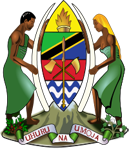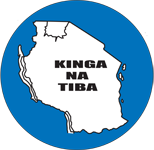
MINISTRY OF HEALTH
Neglected Tropical Diseases Control Program Tanzania

HKI
Last edit: 2016-05-24 15:18:56.
HKI founded in 1915, Helen Keller International’s (HKI) mission is to save the sight and lives of the most vulnerable and disadvantaged. HKI combats the causes and consequences of blindness and malnutrition by establishing programs based on evidence and research in vision, health, and nutrition. HKI Tanzania was established in 1984 and currently has its headquarters in Dar es Salaam. Our programs in Tanzania target children, women and men of reproductive age, and other vulnerable populations. Current programs at HKI Tanzania include the National Vitamin A Supplementation and De-Worming Program, the National Food Fortification Program, Promotion of Orange Fleshed Sweet Potatoes, Assessment and Research On Child Feeding, Enhanced Homestead Food Production, Creating Homestead Agriculture for Nutrition and Gender Equity (CHANGE), and the Trachoma SAFE Program.The Trachoma SAFE Program in Tanzania is managed by Sightsavers UK and aims to tackle the trachomatous trichiasis (TT) backlog in six regions of the country. The program originally started in 2014 through funding from the Department for International Development (DfID), and targeted over 21,000 TT cases in the three regions of Manyara, Mtwara, and Pwani. Additional funding from the Queen Elizabeth Diamond Jubilee Trust (the Trust) became available in 2015, at which time the program was able to add the regions of Arusha, Dodoma, and Lindi and the target of cases managed was increased to more than 48,000. There may also be additional funding made available for face washing and environmental interventions (F&E) for trachoma elimination in later years.
HKI Tanzania is the Coordinating Partner for the Trachoma SAFE Program in Tanzania. In this role, we do not directly support implementation of surgical services, rather we ensure coordination between the grantee partners in each region, the NTDCP, the NECP, and the grant manager. In collaboration with the NTDCP, we facilitate Quarterly Review meetings, plan and organize Surgeon Trainings and other workshops and trainings, develop protocols for supervision and TT case identification, assist in the procurement of surgical equipment, and support two meetings per year of the Trachoma Technical Working Group (TTWG).
In the first year of the Trachoma SAFE Program, we also worked in partnership with the NTDCP to adapt the ICTC Preferred Practice Manuals for TT elimination to the Tanzanian context and to have these approved by the TTWG. These manuals will now serve as official guidance for any organizations/partners planning to conduct TT outreach in Tanzania. We also are working to second a Program Officer to the NTDCP for the duration of two years; recruitment for this position is currently taking place. We will attend Regional Program Launches in each region of the program over the next six months, and then, as surgical camps are ramped up in each area, HKI and the NTDCP will begin to conduct joint supervision visits to each region of the program.